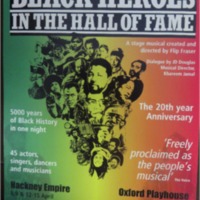
Black Heroes in the Hall of Fame
Black Heroes in the Hall of Fame is an acclaimed stage musical which highlights the contributions and achievements made by black men and women in the world of sports, science and entertainment. First launched as a community project in 1987 at the Shaw Theatre in Camden, the production was created by Flip Fraser in collaboration with JD Douglas and Khareem Jamal. The show was the first all-black cast production to play in the West End. It returned in 2007 with a new line-up of characters, songs and dances, and recreated significant moments in black history including Kings and Queens of Africa, Freedom Fighters, Great Entertainers as well as Malcolm X, Martin Luther King, Marcus Garvey and Nelson Mandela. The musical toured London, Croydon, Nottingham, Oxford and Bristol in 2007.
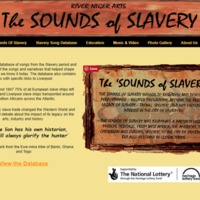
The Sounds of Slavery
The Sounds of Slavery was a project by the performance and visual arts group River Niger Arts to research, record and develop a performance-related programme around the musical heritage and legacy of slavery. The project took particular interest in these themes in relation to the City of Liverpool, but also addressed them in global terms. The project created a database of songs and narratives from the period of slavery. Members of the River Niger Orchestra also performed at a Sounds of Slavery performance at Liverpool Hope University. Some of the songs performed included 'The Chase', 'No More Auction Block' and the African American spiritual 'The Jubilee Song'. The project was accompanied by a series of performance and visual arts education workshops with schools.
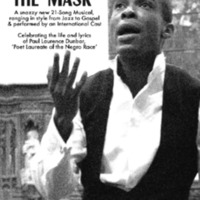
Lifting the Mask
London Shakespeare Workout presented a new 21-song musical, celebrating the life of the African-American poet Paul Laurence Dunbar. Dunbar's parents were freed slaves and he used some of their tales of plantation life in his work. Set backstage in a British theatre in 1897, the play explored themes such as love and loneliness, racial interactions, and the abolition of the slave trade. With an original score by Tim Williams, the play opened in Westcliffe, and toured 26 venues around the UK. Each performance was followed by a ‘talk-back’, allowing audience members to share their views on the issues raised by the production. Special interactive workshops were also created for schools and community groups to bring the concepts of slavery and abolition to life through history and literature.
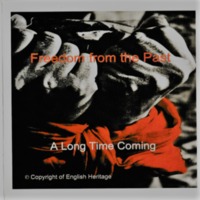
Freedom from the Past: Long Time Coming
A collaborative project between Churches Together in Northampton, English Heritage, Northamptonshire Black History Association (NBHA) and The Northampton Schools Excellence Cluster. Freedom From the Past: Long Time Coming was led by Mary Clarke, Director of the Doddridge Centre, where the NBHA office is based. The project commemorated the 1807 Act and the wider histories of black resistance and the fight against the slave trade through music, drama and historical workshops in Northampton.
The 'Passage' event was held in St Giles' Church on 25 March 2007, an evening of drama, songs and speeches reflecting on the legacies of slavery. There was a 150-strong gospel-style community choir drawn from schools in the Northampton area and local community groups. The event was one of a range of project activities in Northampton which brought together schools, community groups, churches and heritage organisations to explore the issues of slavery in the British Empire. Other events included a community event and 'Walk to Freedom' at the Northampton West Indian Community Association (NWICA) to mark 'Emancipation Day', annually held throughout the Caribbean to celebrate the abolition of slavery. English Heritage funded a professional DVD recording which was afterwards made freely available to NBHA members and others.
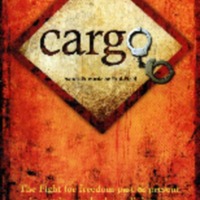
Cargo
Written by composer Paul Field, Cargo premiered in Hull City Hall in March 2007, sponsored by Hull City Council. Cargo featured contemporary songs, narration, dance and images that told the story of the struggles of slaves, the historical work of William Wilberforce and the abolition movement, through to the contemporary struggles against slavery today. Performers included the singer Coco Mbassi, saxophone player Mike Haughton and Springs Dance Company. The narrators and choir were local people, including members of City of Hull Youth Choir, Redemption Gospel Choir and Hot Gospel in Hull. Cargo was also performed in London, Plymouth, Bristol and Liverpool. Smaller events were put on by church and community groups around the UK, assisted by the script, score and backing track of the music being made available on CD-Rom.
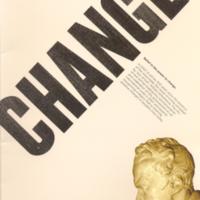
Wilberforce 2007
Wilberforce 2007 was a year-long programme of events from Hull City Council, commemorating the bicentenary and celebrating the city's diverse communities. The programme, named after 'son of Hull' William Wilberforce MP, was based around the themes of Pride, Freedom, Belief and Change. In partnership with Anti-Slavery International, Hull promoted the Fight for Freedom Petition against modern day slavery. The Wilberforce Lecture Trust held five specially commissioned lectures. The Wilberforce Weekender in July 2007 was a weekend of public events, including the Wilberforce Clipper Challenge Cup, Sankofa Sunsplash (celebrating African and Caribbean culture, food and music), Zapcat Racing, and the annual Jazz Festival. Throughout the year there were concerts and specially commissioned pieces from the Hull Choral Union, Hull Philharmonic, Hull Sinfonietta and the East Yorkshire Motor Services Brass Band. Other initiatives raised awareness of Fair Trade, and there was a variety of educational programmes and events. Funding was also made available for smaller community projects.
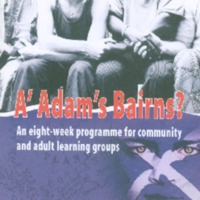
A' Adam's Bairns? Exploring equality and diversity in Scotland past and present
A’ Adam’s Bairns? is an educational resource pack produced in 2007 by a partnership of the National Library of Scotland and the Scottish Development Education Centre (Scotdec). The project explored equality and diversity both past and present, and looked at the attitudes and behaviours which underpinned slavery then and now, such as racism, sectarianism, prejudice and ignorance. The resources and reference materials are aimed at school children and also community and adult learning groups. They made use of material held by the National Library of Scotland and the National Archives of Scotland, and also included contemporary and traditional music produced by Scottish music expert Dr Fred Freeman, including a rendition of 'The Slave's Lament' by Robert Burns. Modules on the programme included slavery, forced movement of people and taking action for change.